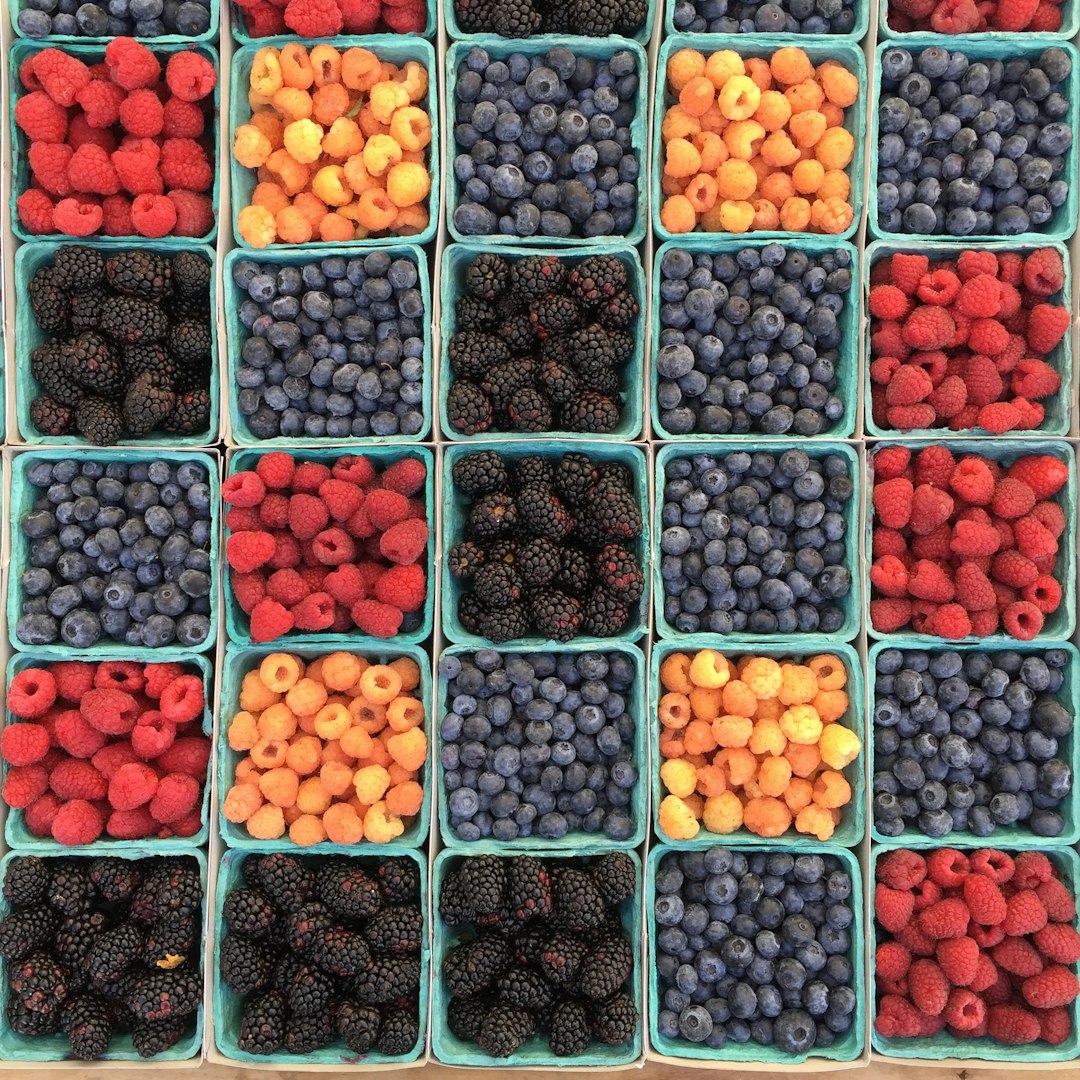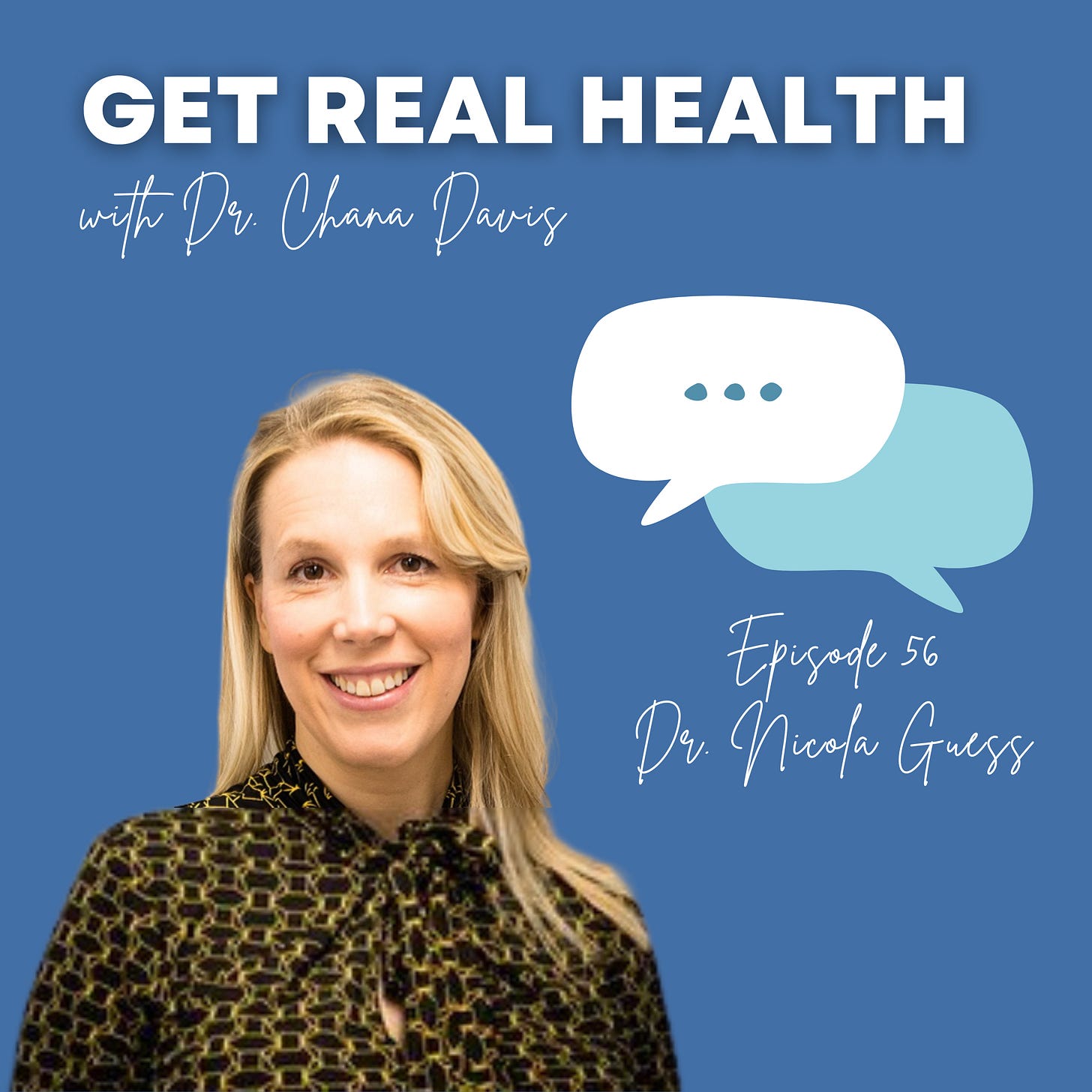The Truth About Fruit and Health
Does an apple a day keep the doctor away?
Fruit has become surprisingly controversial. If you grew up with “an apple a day keeps the doctor away”, you might be baffled. Why would anyone say that fruit is bad for you? Is it true?

Fruit-o-phobia is rooted in the wildly popular low-carb movement. In its most zealous, least sophisticated form, carb-haters vilify any food that contains carbohydrates. They argue that fruit is bad because it causes a blood sugar spike, which turns on insulin, which we are told to avoid. They may also argue that fruit is bad because it contains fructose, a simple sugar (monosaccharide) that can be problematic in excess.
Fortunately for fruit lovers, human health is not as simple as “blood sugar spike = bad” or “fructose = bad”. These statements are gross oversimplifications that pathologize normal human biology. Our bodies are designed to handle sugars from whole fruits and veggies, and crave the fiber and other nutrients they supply. Indeed, real-world studies find, again and again, that fruit is good for us.
Much of the confusion about sugar comes from the differing health effects of “free sugars” or “added sugars” and the intact sugars found within fruits and veggies. While the sugars themselves are the same (glucose, fructose, or sucrose, which is glucose+fructose), the way you consume your sugars matters a lot.
Multiple national and international public health are warning us to limit our intake of “added sugars” or “free sugars”, especially sugary beverages. Those same organizations assure us that we don’t need to avoid sugars found in fruits and veggies. For example, check out the World Health Organization, Health Canada and the US CDC guidance. Even one of today’s most vociferous anti-sugar (anti-fructose) advocates, Dr. Robert Lustig says “Go ahead — eat your fruit! (see Sugar Science FAQs and NY Times interview).
Why do naturally-occurring sugars in fruits and vegetables differ healthwise from (or “free”) sugars? First, sugars from fruits and veggies come packaged with fiber, which slows down our body’s absorption of the sugars, promotes satiety, and fuels your gut microbiome. Second, fruits and vegetables contain many vitamins and minerals that are beneficial to health. Indeed, the scientific evidence consistently shows that fruits and veggies are associated with better health outcomes, while added/free sugars show the opposite trend (especially for sugar-sweetened beverages).

Even for people with diabetes, it’s not as simple as “sugar = bad”. The American Diabetes Association says that “Having a piece of fresh fruit or fruit salad for dessert is a great way to satisfy your sweet tooth and get the extra nutrition you're looking for” but notes that fruits count towards your carbs in your meal plan, if that is your approach. Likewise, Diabetes Canada incorporates fruits and veggies into their daily guidelines, with attention to portions. Diabetes UK emphasizes the need to reduce added or “free” sugars, and sugar sweetened beverages.
Nerd Note: For a closer look at the scientific evidence, check out my appendix and try your own literature study search on PubMed. Type “whole fruit” and your outcome of interest (e.g. “Type 2 diabetes”) and see for yourself. For a lay of the land, filter for a “systematic review” or “meta-analysis” or “review”. No cherry picking here!
The Bottom Line
Don’t shy away from fruit just because it contains sugar. This overly simplistic thinking goes against a mountain of evidence showing that fruit is good for your health. We should be judging sugars by the company they keep - if they come with intact fiber and tons of micronutrients, they are a boon; if they are just a sugar bomb, with little nutrition, they are a bust.
With fruit, you really can have it all - it’s delicious and nutritious. My family enjoys fruit daily all year round, from frozen berries in our oatmeal, to strawberry-banana smoothies, to apples dipped in peanut butter (try it!). As summer approaches, we have a windowsill full of ripening peaches and nectarines, and go nuts foraging for fresh blackberries along the road.

As with all things, the dose makes the poison, and it is possible to overdo it on fruit. Too much fruit can cause bloating, stomach pain, diarrhoea and other GI issues. Listen to your body. Also, don’t go so crazy with fruit that you miss out on the other nutrients your body needs. Fruits do not contain the fats and protein that our bodies need, so a fruit-dominant diet can be a recipe for deficiency in these important areas.
To learn more, check out my podcasts and appendix below, andDr Guess’s Blog - she is a PhD, RD, MPH who specializes in diabetes and knows a ton about blood sugar.
Last but not least, please share this article with someone who is missing out on the joys of fruit! Thanks for being here with me.
Best,
Disclaimer: If you have a medical condition, please seek professional medical advice about an appropriate diet for your unique situation.
Related Podcast Episodes
Carbs, Sugar Spikes and Blood Glucose Monitors (Dr. Nicola Guess). Find Get Real Health with Dr. Chana Davis, Ep.56 on my website, Apple Podcast or Spotify.
Preventing Type 2 Diabetes Through Diet (Dr. Nicola Guess). Find Get Real Health with Dr. Chana Davis, Ep.22 on my website, Apple Podcast or Spotify.
Managing Type 2 Diabetes Through Diet. Find Get Real Health with Dr. Chana Davis, Ep.21 on my website, Apple Podcast or Spotify.
Making Sense of Nutrition Studies and Headlines (Dr. Deirdre Tobias). Find Get Real Health with Dr. Chana Davis, Ep.38 on my website, Apple Podcast or Spotify.
Appendix - Scientific Studies on Fruit and Health
Before sharing some of the studies on fruit and health, I want to talk about their limitations. Much of the evidence comes from epidemiological studies, which can’t prove causation, and must be interpreted with caution. Undoubtedly, some of the apparent health benefits of fruits come from a healthy user bias - those who eat more fruit are probably engaging in a healthier lifestyle overall.
Despite these limitations, the body of evidence in favour of fruit is strong - which it’s why it is accepted by many professional bodies worldwide. Key strengths include: 1) it’s consistent across many large studies; 2) it shows a dose response; 3) it has a strong mechanistic basis.
In general, diet is notoriously hard to study in the real world. We rarely have perfect randomized controlled trials that allow us to prove causation. Ideally, we would want to assign one large group of people to eat fruit and another to avoid fruit, and follow them for decades to see what diseases develop. This way, you can be confident that fruit intake was responsible for any health differences (assuming perfect adherence to the dietary prescription, and no other differences between the groups). Instead, we often rely on observational studies, in which we look at the link between fruit intake and health status across thousands of people. These studies are messy because different health behaviours often cluster together - for example, that people who eat fruit also exercise more. We can use statistics to control for this, but we can rarely do it perfectly.
Obesity
Cardiovascular disease and cancer
Type 2 Diabetes



"We should be judging sugars by the company they keep..."
Love this. I'm so tired of the all-sugars-are-bad "wellness" gurus.